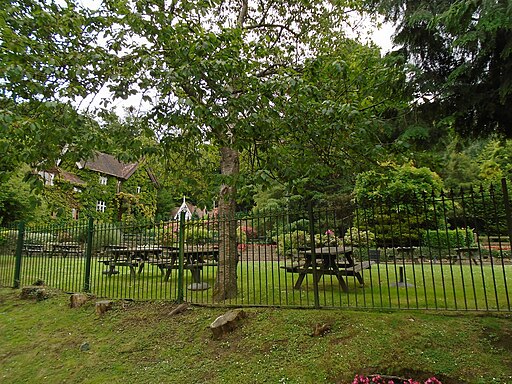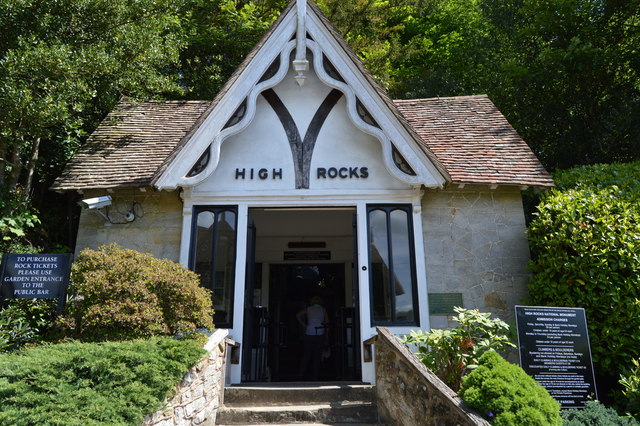High Rocks Tunbridge Wells Walks
![]()
![]() This walk visits High Rocks in Royal Tunbridge Wells. The photogenic sandstone rocks are located just west of the town and a major local highlight.
This walk visits High Rocks in Royal Tunbridge Wells. The photogenic sandstone rocks are located just west of the town and a major local highlight.
The area includes some pleasant footpaths taking you past the rocks and through some attractive woodland. Once a Stone Age camp, the rocks have a fascinating history, dating back millions of years and are now classified as a National Monument.†
Part of the Tunbridge Wells Circular Walk runs through the area so you can pick up this path to extend your walk. If you follow the trail east it will take you to Tunbridge Wells Common where there are miles of footpaths and more interesting local geology at Wellington Rock. The walk on the map below will link you to both rocks.
Postcode
TN3 9JJ - Please note: Postcode may be approximate for some rural locationsPlease click here for more information
High Rocks Ordnance Survey Map  - view and print off detailed OS map
- view and print off detailed OS map
High Rocks Open Street Map  - view and print off detailed map
- view and print off detailed map
High Rocks OS Map  - Mobile GPS OS Map with Location tracking
- Mobile GPS OS Map with Location tracking
High Rocks Open Street Map  - Mobile GPS Map with Location tracking
- Mobile GPS Map with Location tracking
Pubs/Cafes
High Rocks Pub: Located in the High Rocks complex, there are five oak-beamed function rooms, each equipped with its own bar, dance floor, and late license. The venue is licensed for civil wedding and partnership ceremonies. A restaurant serving lunch and dinner is available, alongside a pub offering food throughout the day. Both establishments are open daily. The complex also boasts a beautiful garden and terrace, complete with a steam train stop right in the garden.
Dog Walking
Dogs are allowed on the Tunbridge Wells Circular Walk footpaths that pass the rocks and lead to the common.
Further Information and Other Local Ideas
The area emerged when a melting ice sheet at the end of the last ice age revealed hardened silt, deposited during the time when the region was part of the Wealden Lake. Evidence of Middle Stone Age and Iron Age habitation exists, including a 1st-century A.D. fort established to defend against the Roman invasion.
Following King James II's visit to Tunbridge Wells in the 17th century, which led to the development of the woodland as a resort, High Rocks became a popular tourist destination, complete with a maze, bowling green, gambling rooms, and cold baths. The 19th century saw the addition of the Aerial Walk, a series of bridges connecting the tops of the crags.
In 1907, a local railway halt was established, serving the area until 1952. Now, the Spa Valley Railway, a heritage railway, links the High Rocks pub beyond the turnstiles to Tunbridge Wells, Groombridge, and Eridge.
High Rocks is a significant site for studying sandstone weathering, featuring the highest cliffs in the Weald. The Ardingly Sandstone here has undergone gentle deformation, creating dramatic gulls (tension cracks) large enough to walk through in places.
These open gulls, rare in Britain except in the central Weald, are most visibly displayed at High Rocks. The sandstone, friable and poorly cemented, forms a protective crust with unique micro-weathering features like honeycombing and polygonal cracking, possibly due to freezing and thawing during the Pleistocene.
The site, popular among rock climbers and the general public, is often used for wedding receptions. There are footpaths around the rocks and bridges across the crags. Access to the main area requires a £5 entrance fee.
An unfenced section of the rock ridge, free to access, is reachable via a public footpath east of the pub, near the railway bridge.







